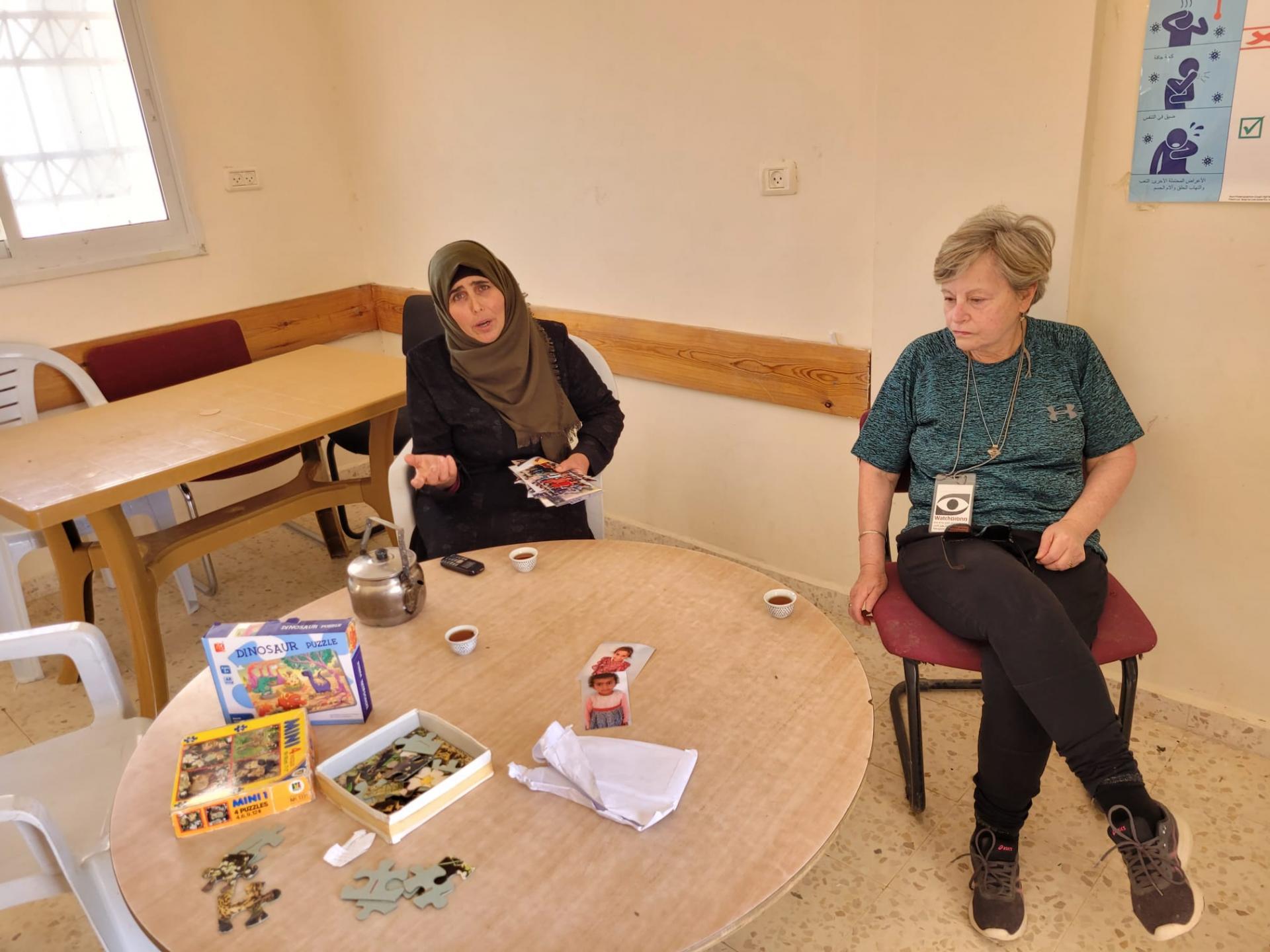A-Zwidin – Havat Shorashim settler graze on Palestinian land
The purpose of the shift: a visit to the village of A-Zwidin, and gathering information about the farm near it.
The village of A-Zwidin is northeast of Umm al-Kheir. On the road leading to the buildings of the Jordanian Umm-Darraj police station - after the cowsheds of the Carmel settlement, turn left. We went to A-Zwidin with the aim of checking the location of the Shorashim (Roots) Farm, and to talk with the neighbours from A-Zwidin about the impact on the lives of the Palestinian neighbours. On the map, the farm is shown to be near the road to A-Zwidin, to the east. On the road there is a (shabby) sign indicating the existence of the farm. The farm itself is barely visible from the road.
Dror Etkes, of Kerem Navot, provided the following information about the farm: (Thank you)
The outpost was established about six months ago, or a little more. It sits on land that was expropriated by declaring it state land and transferred to the Carmel settlement. One family lives there. The father of the family is a man named Shimon Atiya. Like all these places, as soon as they are in the field, a cycle of violence begins, expelling, Bedouin herders in this case, who have been grazing there for generations.
The residents of A-Zwidin are Bedouins from the Ka'abne tribe who were expelled from Israel during the War of Independence.
At the entrance to the village, we saw some young people and we stopped to chat with them. Muhammad explained to them who we are. They said that the settler, Shimon, from the farm of Shorashim, grazes his flock on the lands of the residents of A-Zwidin, on a daily basis. When the residents arrive with their flocks in the territories that belong to them, Shimon and his friends drive them out. The army regularly backs up the settler: the usual pattern of the illegal farms taking over the local Palestinians.
Then a number of children and some men from the Diwan, where they were sitting came out to us. We explained what the Machsom Watch organization is, and what its goals are. They say that Shorashim Farm was established about six months ago. Its owner forbids them to cross the road (which runs inside the village) in the direction of the farm. If they nevertheless cross the road to graze their herds, he calls the army, which, as expected, removes the Palestinians and threatens arrest.
Recently the army arrested seven of the villagers, and took their cell phones (they were released after a while). They say the army comes to A-Zwidin every night to makes its presence felt. The owner of a number of camels said that the settlers of Havat Shorashim do not allow his camels to cross the road towards the farm, in search of pasture. Having no choice, they are forced to buy food for the herds, despite the high price that makes it very difficult for them. They say that since the establishment of the current government there has been a major change for the worse in the interface with the government.
We continued from there to Khashem al-Darraj in order to bring Huda pictures that Aya (the wonderful granddaughter) of Ariela Slonim had developed for her. The kindergarten is on summer vacation, but she was waiting for us. On our way we saw a group of children walking home, like all the children of the villages in the area, sometimes a walking distance of several kilometers.

